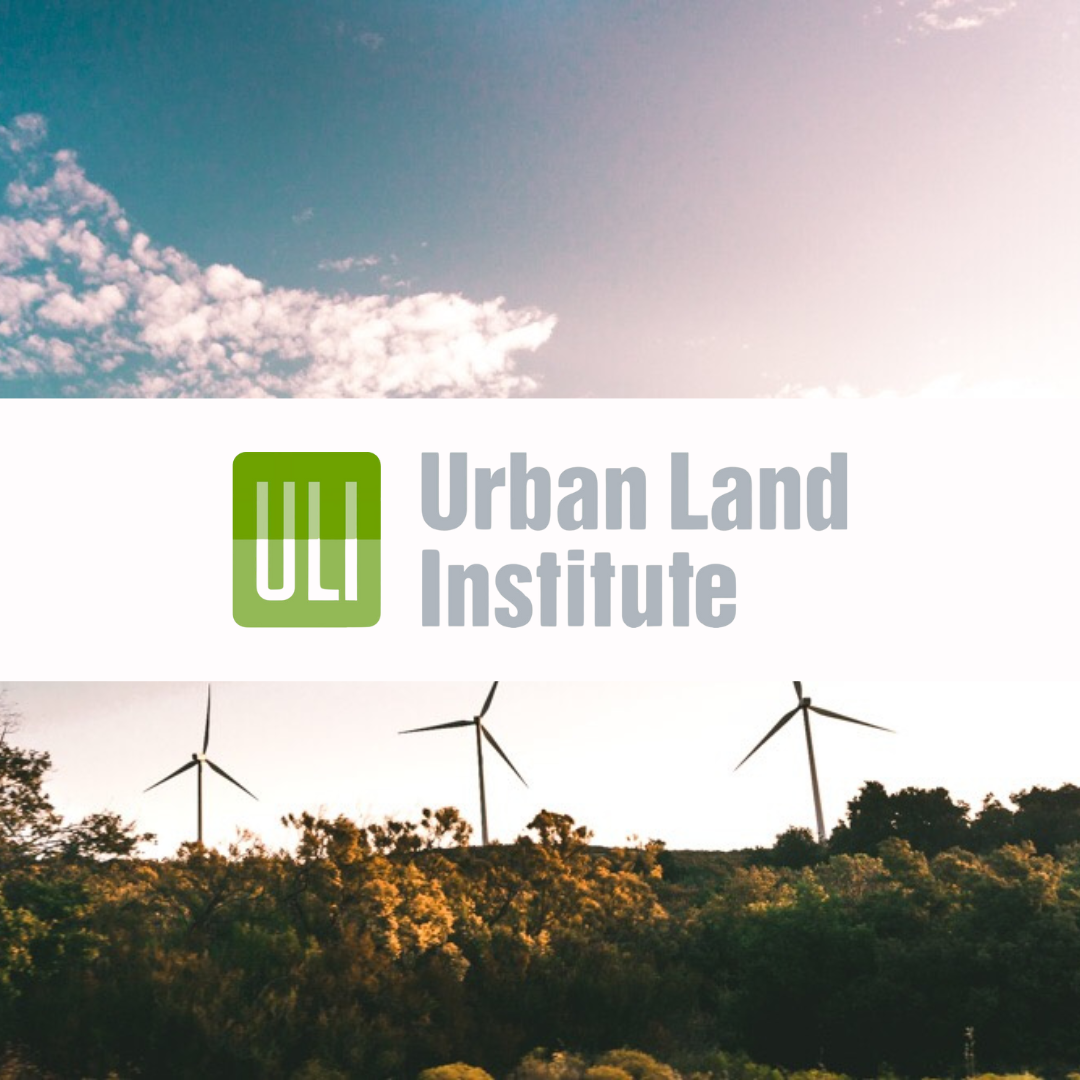

Companies prioritize sustainability like never before.
Real estate leaders expect 2024 to be characterized by widespread industry action on sustainability, according to the newly released ULI Global Sustainability Outlook 2024 report. Despite economic and political uncertainties, a host of market pressures—such as growing connections between sustainability and financial performance, increasing regulations, extreme weather events, and the importance of health and social equity—are driving real estate companies to prioritize sustainability like never before.
ULI Global Sustainability Outlook 2024 highlights five themes that are affecting real estate decision-making around sustainability in the coming year. This annual publication, launched in 2021, offers insights from ULI member experts on the key environmental, social, and governance (ESG) issues that will be influencing the real estate industry in the next 12 months.
The ULI Randall Lewis Center for Sustainability in Real Estate, in partnership with sponsor Ferguson Partners, convened a series of roundtables to source member input, engaging leaders from sustainability-focused product councils in the Institute’s three regions—the Americas, the Asia Pacific, and Europe. The insights from the roundtables informed this year’s publication, revealing five key priority areas that will affect real estate decision-making in the coming year.
1. Linking sustainability performance and financial performance. As industry stakeholders—especially lenders, investors, and tenants—become increasingly sophisticated around ESG topics, real estate companies can expect to see material connections between their sustainability efforts and financial performance. Accessing capital in 2024 and beyond will require real estate companies to demonstrate how far along they are on the path to decarbonization, and how they will achieve their ESG goals in the future.
2. Going back to basics to advance decarbonization. Broad interpretations of common sustainability terms (e.g., what does it actually mean for a building to be “net zero”?) and the sheer volume of topics under the ESG umbrella have left companies feeling overwhelmed and unclear on what to prioritize. Real estate leaders can get in front of this by doubling down on fundamental sustainability practices, like improving operational efficiency and taking advantage of the myriad tools already on the market to support decarbonization.
3. Complying with an evolving regulatory landscape. This year, real estate stakeholders everywhere are confronting major changes in sustainability reporting frameworks. In the past, firms primarily reported their sustainability performance and environmental impacts on a voluntary basis. However, a rush of new policies and financial rules are making these disclosures mandatory and establishing systematic methods for transparently reporting on ESG performance. Whether they are responding to the Corporate Sustainability Reporting Directive (CSRD) in Europe, the International Sustainability Standards Board’s inaugural sustainability disclosure standards (IFRS S1 and S2), or local policies at the city (e.g, Local Law 97 in New York) and state level (e.g., updates to CALGreen that address embodied carbon in California), real estate companies are quickly adapting to an evolving regulatory landscape that emphasizes transparency.
4. Prioritizing resilience as extreme weather intensifies. As extreme weather events increase in frequency and severity, real estate leaders across the globe are ramping up efforts to better understand and mitigate the impact of climate-related hazards on assets. In particular, the resilience of the utility grid is a growing area of concern as weather events diminish reliability at the same time as the industry’s electrification is increasing demand. Real estate leaders are exploring onsite renewables, battery storage, and a range of other solutions to support energy resilience in light of these challenges.
5. Approaching sustainability holistically. Emerging pressures from investors and tenants alike are driving real estate firms to think holistically about sustainability and integrate human health and nature, in addition to climate, in their efforts. There is growing recognition that health and the environment are two sides of the same coin, and that investing in one will often result in co-benefits for the other. Real estate leaders that embrace this interconnectedness and build spaces that are good for people, communities, and the planet are better positioned for success in 2024 and beyond.
In the words of one Global Sustainability Outlook participant, “we are in the age of actioning decarbonization.” With these five issues on the rise in 2024, the real estate and land use industry must prioritize rapid action to meet the urgency of the moment and increase momentum toward a sustainable future.









